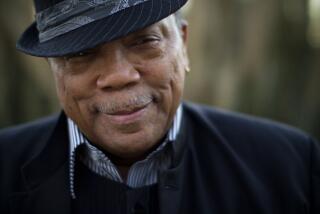Kirkland’s Death Silences a Versatile Performer
- Share via
Pianist Kenny Kirkland was recently found dead in his Queens, N.Y., apartment. Reports indicated that drug paraphernalia was near the body.
His death called up recollections of the post-World War II era in jazz, a period when early passing was far more common than it has been in recent years. The names spring easily to mind--saxophonists Charlie Parker and Wardell Gray, trumpeters Fats Navarro and Clifford Brown, to name only a few.
Some succumbed to their destructive habits, others to accidents. (Brown died at the age of 25 in a Pennsylvania Turnpike crash, along with pianist Richie Powell.)
It would be easy to add Kirkland to the list of jazz artists who brought on their own demise via their lifestyle choices. But Kirkland, according to close friend and musical associate Branford Marsalis, had been attempting to change his patterns.
“The tragedy was that in the past year he had made the decision that he wanted to live,” Marsalis said. “Sadly, it was during this time that he slipped away from us.”
Regardless of the circumstances, Kirkland’s passing deprives jazz of a talented artist, capable of playing everything from synthesizer pop with Sting to stirring, straight-ahead jazz with both Wynton and Branford Marsalis. Although, at 43, he still had not produced a substantial body of work, there was the constant hope that Kirkland would finally emerge in a fashion fully consistent with the skills he continually revealed, both in recordings and live settings.
Unfortunately, it was not to be, and his relatively brief chronicle of recordings will be a constant reminder of what Kirkland’s career might have been.
Even so, “Kenny’s legacy,” Marsalis insisted, “is that of a great musician and not merely someone who spent his life fighting his demons.”
More to Read
The biggest entertainment stories
Get our big stories about Hollywood, film, television, music, arts, culture and more right in your inbox as soon as they publish.
You may occasionally receive promotional content from the Los Angeles Times.










